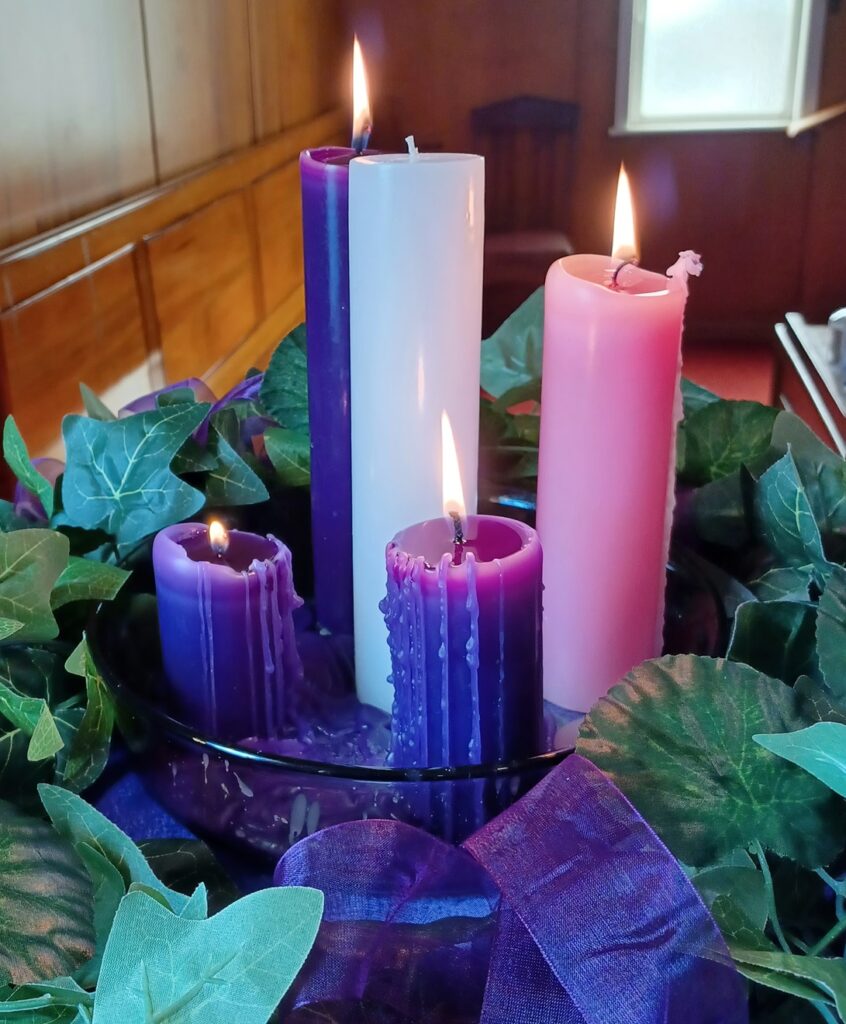Reflection on the Readings for the Fourth Sunday of Advent, 22 Dec 2024:
Micah 5:1-4; Hebrews 10:5-10; Luke 1:39-45

On this fourth Sunday of Advent, the Sunday before Christmas, we hear in the first Reading the quote that is so important for the Magi who followed the star and were looking for the birth of a special ruler: “But you, Bethlehem Ephrathah, the least of the clans of Judah, …” The prediction by the prophet Micah that Scripture scholars recite to Herod and that leads to Jesus.
Listening to this prophecy shortly before the celebration of the birth of Jesus helps us to understand that it was no coincidence that Jesus was born in Bethlehem. The people have been waiting for a very long time for the “Prince of Peace” who would come out of the “House of Bread” (Bethlehem).
In the Letter to the Hebrews, Paul mentions the first Covenant that was done with the blood of sacrifices, holocausts. The second Covenant, however, was done with the blood of Jesus who had come into this world to take our sins. His body was “prepared” for this reason – so that God’s will would be done.
Mary in the Annunciation and Jesus before his death clearly render themselves over to the will of God. They know that they are part of God’s plan. Their lives and their sufferings are also part of God’s plan.
Nothing is impossible for God. Mary conceived by the Holy Spirit and was found with child before she was married to Joseph. Elizabeth conceived at a time in life when she didn’t expect it anymore. Did she also conceive by the Holy Spirit? We don’t know.
What we do know is that Mary didn’t hesitate to go and help her older cousin even though she was with child herself. It was certainly not easy nor comfortable to travel to other places at the time. However, Mary would have also known that Elizabeth had been longing for giving birth for a long time, that her husband was mute, and, due to her age, it is not likely that Elizabeth would have had her own mother around to help her.
While the focus seems to shift from Mary to Elizabeth, the encounter between the two women draws even more attention to Mary. While Mary “greeted” Elizabeth, it is Elizabeth who cries out in joy and blesses Mary and the fruit of her womb.
Mary gives us a wonderful example of trusting God and reaching out to others. As we heard in the Readings throughout Advent, there are no obstacles that can’t be overcome if it is God’s will. Everything is possible.
BM



